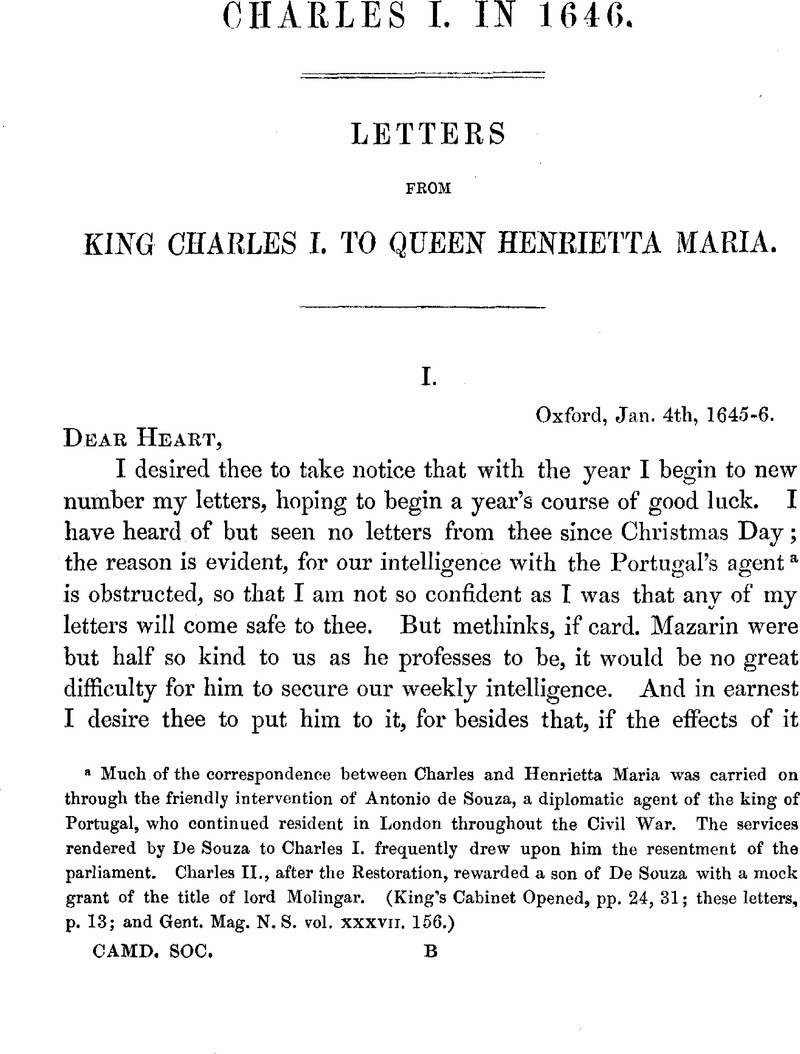No CrossRef data available.
Article contents
Letters from King Charles I. to Queen Henrietta Maria. I
Published online by Cambridge University Press: 23 February 2010
Abstract

- Type
- Charles I. in 1646
- Information
- Camden Old Series , Volume 63: Charles I. in 1646. Letters of King Charles the First to Queen Henrietta Maria , April 1856 , pp. 1 - 3
- Copyright
- Copyright © Royal Historical Society 1856
References
page 1 note a Much of the correspondence between Charles and Henrietta Maria was carried on through the friendly intervention of Antonio de Souza, a diplomatic agent of the king of Portugal, who continued resident in London throughout the Civil War. The services rendered by De Souza to Charles I. frequently drew upon him the resentment of the parliament. Charles II., after the Restoration, rewarded a son of De Souza with a mock grant of the title of lord Molingar. (King's Cabinet Opened, pp. 24, 31; these letters, p. 13; and Gent. Mag. N. S. vol. xxxvii. 156.)
page 2 note a The well-known “Jack Ashburnham,” a groom of the bed-chamber to Charles I. often mentioned in his majesty's letters, and one of the agents in the king's surrender to the Scots, and in his subsequent escape from Hampton Court to the Isle of Wight. His Vindication from the aspersions to which his conduct on these occasions laid him open, published by one of his descendants in 1830 (2 vols. 8vo. Lond.), is a well-known book.
page 2 note b A general in the Scottish service. He defeated Montrose at Philiphaugh, but succumbed to the military genius of Cromwell at Dunbar and Worcester.
page 2 note c James, king Charles's second son, afterwards James II., was now with his father cooped up in Oxford. The intended journey here alluded to was into Ireland. (Clarendon's Rebell. Book xiii.)
page 2 note d Hereford was taken from the king by stratagem on the 18th December, 1645. (Whitelocke's Mem. 184, edit. 1732.)
page 2 note e The king had despatched from Oxford a body of his small army for the relief of Chester, but the bridges on their line of march being broken down, and the hedges lined with musqueteers, they were unable to accomplish their mission. Chester held out most courageously, and through terrible suffering, until the beginning of February. (White-locke's Mem. 183, 191, edit. 1732.)




